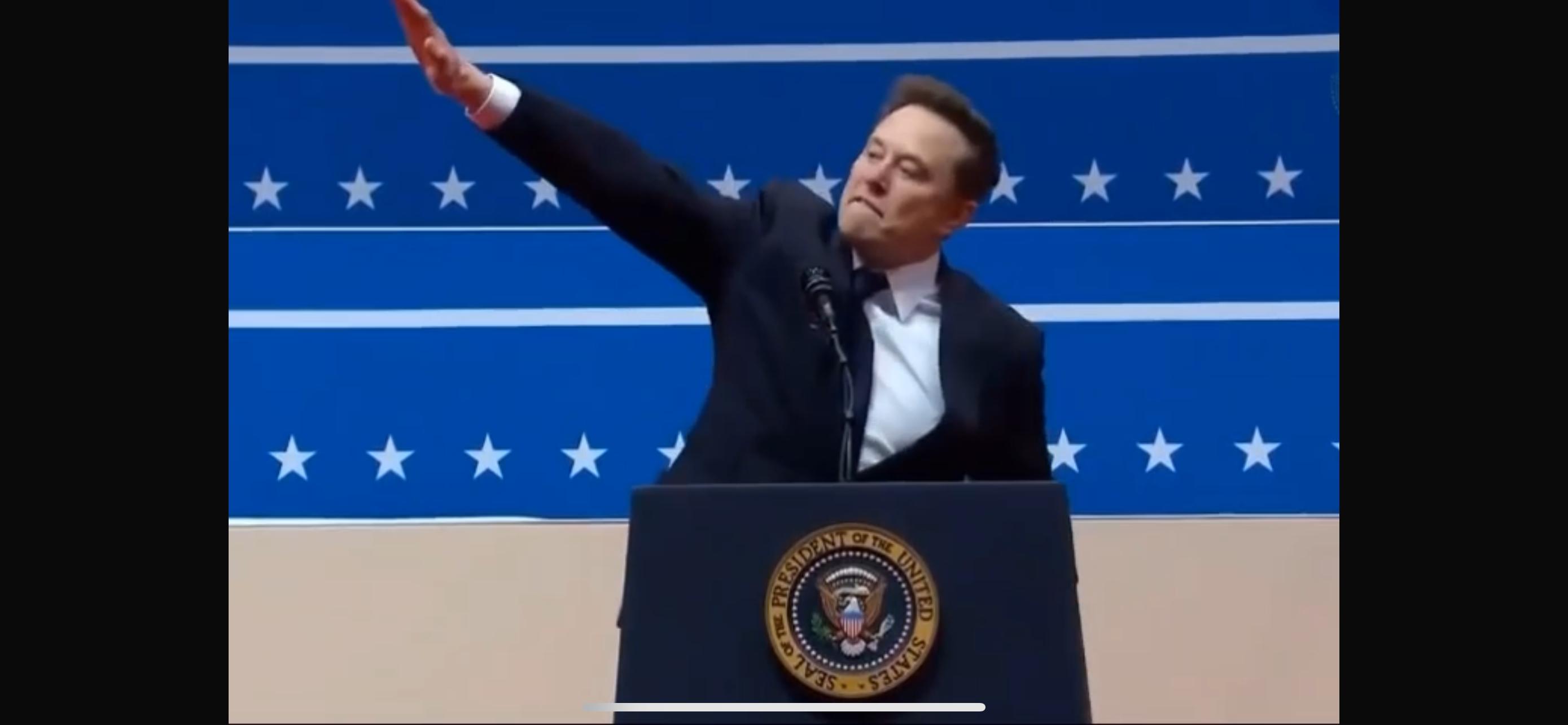WATCH and judge for yourselves
Thunderous uproar: Did Elon Musk give a Nazi salute?
Elon Musk, the world’s richest man, stirred significant online and media backlash after performing what many interpreted as a “Nazi salute” during a speech at the Capitol One Arena on the day of Donald Trump's second inauguration.

During his speech at the event, which was held to celebrate President Trump’s return to office, Musk appeared to deliver an odd-looking salute. After passionately discussing space exploration and his vision for America’s future, Musk placed his right hand on his chest, then extended his arm upward and outward in a distinctive angular motion. The action was repeated moments later as he turned his back to the audience.
As the CEO of Tesla, SpaceX, and owner of Twitter/X, Musk is no stranger to controversy, but this recent gesture has ignited intense debate over its meaning and implications.
Immediately, social media users were quick to draw comparisons to the Nazi salute, which historically involved extending the right arm at an upward angle with the palm facing downward, accompanied by chants such as “Heil Hitler.” Some commentators did not hold back in their accusations. “Our new co-president Elon Musk gives a Nazi salute on day one of Trump presidency,” tweeted Democratic strategist Sawyer Hackett, sharing footage of the moment. Others, like Eric Feigl-Ding, a public health expert, reacted with disbelief: “My God… Musk just did the Nazi salute live on TV.”
However, some analysts and Musk’s defenders quickly argued that the gesture was not a Nazi salute, but rather a “Roman salute,” a gesture historically associated with the ancient Roman Empire, which later became co-opted by fascist regimes, including Nazi Germany. This interpretation suggests that Musk may have been attempting to convey respect and loyalty, rather than promoting a fascist ideology.
While the debate rages on, the Anti-Defamation League (ADL) has noted that the Nazi salute typically involves the right arm extended with the palm facing down. Whether intentional or not, Musk’s actions closely resemble this description, prompting many to ask whether the billionaire businessman was making a political statement.
Musk’s sudden rise as a key Trump ally has already made waves in global politics. Recently, Musk has courted controversy with his support for far-right figures, such as Alice Weidel, the leader of Germany’s far-right party, Alternative für Deutschland. Weidel has controversially downplayed Hitler’s politics, claiming that he wasn’t a conservative but a socialist, to which Musk reportedly agreed.
In light of this growing pattern of engagement with far-right ideologies, some have raised concerns about Musk’s political leanings. For example, Haaretz, an Israeli newspaper, described Musk’s salute as an example of a “fascist salute,” noting the gesture’s association with fascist movements, including Nazi Germany. The symbol has remained prevalent in modern-day white supremacist circles.
Despite the controversy, Musk has yet to comment on the incident, and his supporters argue that his actions have been misinterpreted. “Elon Musk was just excited and spreading his hand to the crowd. Leftists will try to paint this as a Nazi salute,” wrote one user on X.
The incident has sparked a broader conversation about Musk’s role in American politics, his relationships with far-right movements, and the power of visual symbolism in modern political discourse. With each new controversy, Musk seems to find himself in the crosshairs of those who question his affiliations and motivations. As the debate continues to unfold, the world watches to see how Musk will respond to these latest accusations—and whether his public image can survive the fallout.